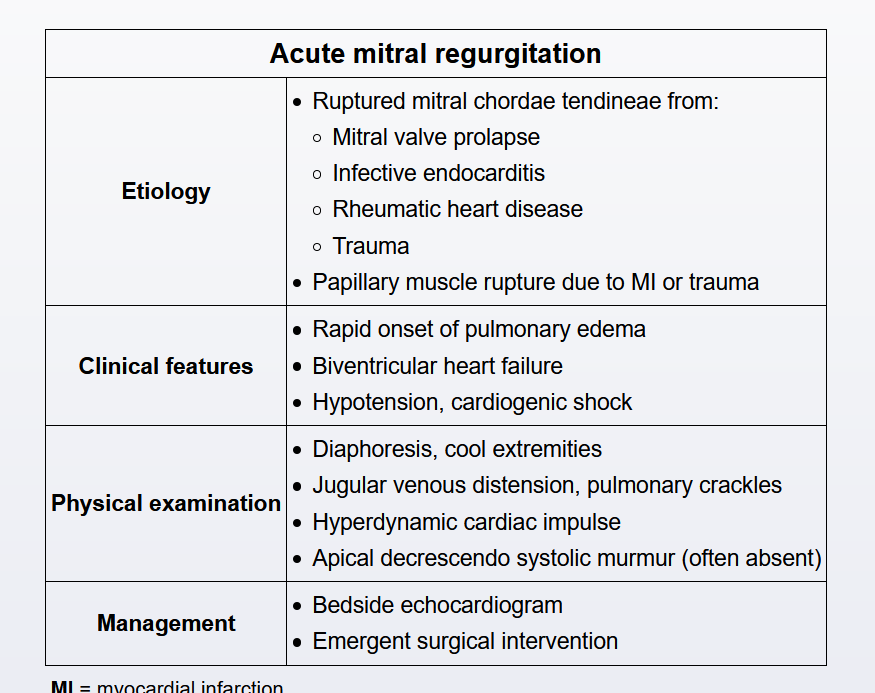Acute mitral regurgitation can cause acute heart failure

This patient has acute heart failure due to acute mitral valve regurgitation (MR). Acute MR can occur due to papillary muscle rupture, typically in the setting of myocardial infarction (MI), or due to rupture of the mitral chordae tendineae. Patients with mitral valve prolapse, especially when it is related to underlying connective tissue disease (eg, Marfan syndrome, Ehlers-Danlos syndrome), are at risk for mitral chordae tendineae rupture, leading to a flail leaflet and acute MR. Patients with acute MR typically have a dramatic presentation (due to lack of time for left heart adaptation) compared to those with chronic MR. They often present with sudden-onset progress to cardiogenic shock with poor tissue perfusion and peripheral vasoconstriction. Cardiac examination reveals a hyperdynamic precordium and a decrescendo holosystolic murmur at the cardiac apex. Patients with acute, severe MR have early equalization of left atrial and left ventricular pressures, and up to 50% (especially with